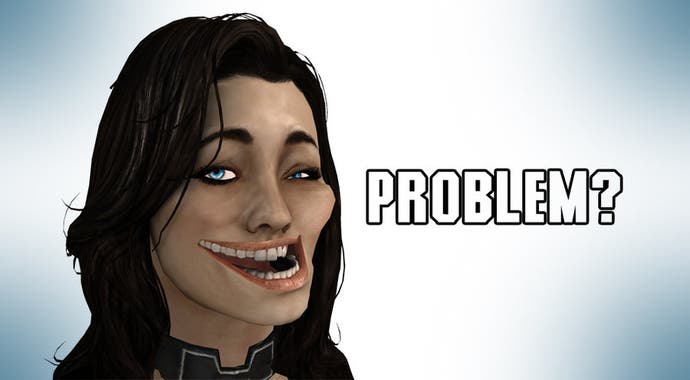BioWare's "increasingly toxic" forum repels Dragon Age writer David Gaider
"Perhaps there is something to be said about whether the games BioWare makes still satisfy our core fans."
David Gaider has worked at BioWare for 14 years. He first helped make Baldur's Gate 2 and now he's lead writer of the Dragon Age series of games. He's a part of the old BioWare and the new.
But these days he tends to "largely avoid" the BioWare Social Network forum because of its "increasingly toxic" atmosphere.
"Spending too much time there starts to make me feel negative - not just about the games we make, but about myself and life in general," Gaider explained on his blog.
"The signal-to-noise ratio does seem to be worsening, and eventually you get the feeling like you're at one of those parties where all anyone is doing is bitching. It doesn't matter what they're bitching about so much as, sooner or later, that's all you can really hear.
"Engaging starts to mean partaking in the bitching until you feel like that's all you're doing. Even when I try to rise above, those who are most negative will seek me out in order to get a rise out of me - and not unsuccessfully. I am only human, and I'll end up responding to score points just as they do, and end up feeling sh**ty for having done so."

BioWare had to close the Mass Effect 3 Character and Romance Discussion forum because "there is entirely too much fighting, rule breakage and petty bickering in the threads here".
Why has this happened?
Is it because "the polite, reasonable folks stop feeling like it's a group of people they want to hang around" so they take their middle-ground opinions and go, leaving only the extreme ends of the spectrum - fierce critics versus the fans zealous enough to combat them - to duke it out?
Who were those "polite, reasonable folks" anyway - BioWare's old fans, old as in past-tense?
BioWare's foundation is Baldur's Gate, hardcore isometric RPGs based on Dungeons & Dragons. But then there came console-first games Knights of the Old Republic, Jade Empire and Mass Effect. And then came EA.
Dragon Age: Origins showed some of the old BioWare, but Dragon Age 2 put a spanner in the works.
BioWare games today are built for a different mainstream: people who behave differently than traditional chin-stroking RPG fans.
Gaider acknowledged this: "Perhaps there is also something to be said about whether the games BioWare makes still satisfy our core fans."
BioWare itself is also different. Again, it's an EA studio now. I spoke to one of BioWare's founders and veterans, Trent Oster, recently, who saw "a changing of the guard" at his old studio.
He also told me how shortly before BioWare doctors Ray Muzyka and Greg Zeschuk retired, he met Zeschuk for a drink and he seemed weighed down and damaged by all the negative criticism of the Mass Effect 3 ending.
"The only other option is to simply avoid all online interaction with fans at all or make any such completely benign and PR-oriented..."
David Gaider
Not that there isn't encouragement and praise; Gaider said he encountered "plenty of positive, enthusiastic fans" on his travels, particularly at conventions and game shows. The BioWare Social Network isn't - "not in the slightest" - the only place to get feedback, and nor should it be, he argued.
"I suspect you'd get a skewed opinion of almost any game if you went solely by its dedicated online community," he remarked. "They certainly serve their place, and if you want to gauge the temperature of the hardest of the hardcore's opinions about core matters there's probably no better place to go."
Where does this leave Gaider? He still wants feedback, both good and bad, and knows how important it is to his work. He's not coy about critique. He'll still visit the forums because there are "very keen and intelligent" people there who keep him going back. But he won't be drawn into slagging matches.
"Best to take a breath, smile and remember there are a lot of really genuine, positive people to talk to. People who challenge you in a way that doesn't make you feel worse about yourself," he concluded.
"You should surround yourself with them the same way you'd surround yourself with such people in real life.
"Words to live by? I hope so," he added. "The only other option is to simply avoid all online interaction with fans at all or make any such completely benign and PR-oriented, which would be unfortunate - and not, I suspect, what even the angry fan would want."

